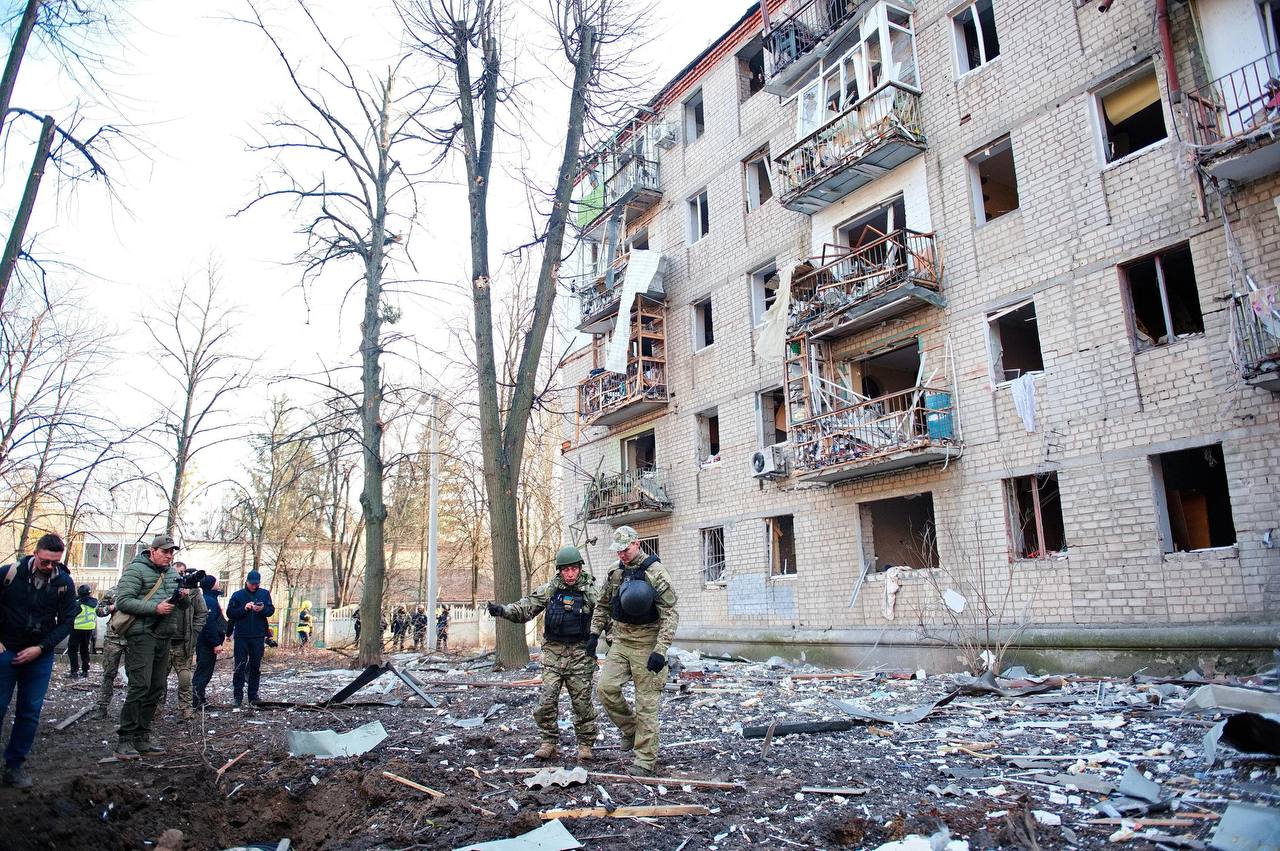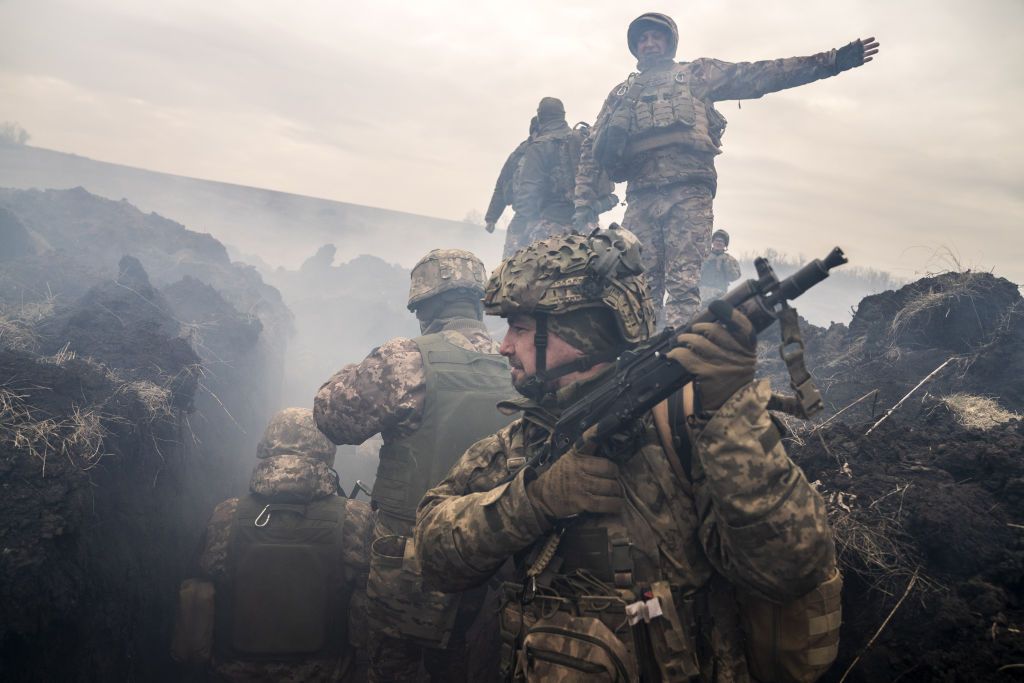Russia launches large-scale attack across Ukraine, hitting energy infrastructure

Editor's note: This is a developing story and is being updated.
Russian forces launched a massive aerial attack across Ukraine overnight on April 11, targeting critical infrastructure in multiple regions.
The attacks damaged energy facilities in Kharkiv, Kyiv, Zaporizhzhia, Odesa, and Lviv oblasts, said Ukraine's state-owned energy operator Ukrenergo.
Engineers are at work restoring the damaged sites, Energy Minister Herman Halushchenko said via Facebook.
The Air Force issued an aerial alert for most of the country, including the far-western oblasts, in the early hours of April 11. The military announced that Russia had launched drones, cruise missiles from Tu-95 bombers, and Kinzhal hypersonic missiles at various regions.
Explosions were reported in the city of Kharkiv at around 5 a.m. local time. According to Kharkiv Oblast Governor Oleh Syniehubov, the region was struck at least 10 times, causing damage to critical infrastructure.
Kharkiv Mayor Ihor Terekhov told residents to expect power outages and said that the metro would be out of service for several hours. Emergency electricity restrictions were introduced in the oblast at 6:31 a.m.
Over 200,000 subscribers in Kharkiv Oblast were left without electricity after the attack, and the metro is being used as a shelter, according to Oleksii Kuleba, the deputy head of the Presidential Office.
No casualties were reported.
Syniehubov later clarified that Russia used S-300 anti-aircraft missiles in the attack against Kharkiv's energy facility. An apartment building was also damaged as a result.
Terekhov reported that a thermal power plant that powers the city was damaged, and a transformer substation was completely destroyed.
Russia has recently intensified attacks against Ukraine's second-largest city, targeting critical infrastructure and residential areas with missiles, glide bombs, and drones. Terekhov said on April 1 that Russian attacks had destroyed "almost all" of the city's energy infrastructure.
Russian forces attacked Kyiv Oblast with drones overnight, targeting the region for over five hours. Drone strikes caused a fire at a critical infrastructure facility in Kyiv Oblast, according to Governor Ruslan Kravchenko.
Kravchenko said that emergency services were at work at the scene and that no casualties had been reported.
The Trypillia Thermal Power Plant in Ukrainka, Kyiv Oblast, was completely destroyed in the attack, the state energy company Centerenergo said. This led to the total loss of Centerenergo's generating capacity.
Russian strikes were also reported in Ukraine's western oblasts. Lviv Oblast Governor Maksym Kozytskyi said that a Russian missile entered the region's airspace shortly before 6 a.m. local time on April 11.
Russian missiles and drones targeted two energy sites in Lviv Oblast, namely a gas distribution facility in the Stryi district and a substation in the Chervonohrad district, the governor said.
Firefighters promptly extinguished the resulting fire. No casualties or outages were reported in the oblast.
Russian forces previously tried to hit a critical infrastructure target in Lviv Oblast on March 24, March 29, and March 31, according to Kozytskyi.
Residents reported explosions in Ivano-Frankivsk Oblast at around 6:30 a.m. local time.
Explosions were also reported in Zaporizhzhia Oblast. Russian missiles damaged an energy infrastructure facility in the region, Governor Ivan Fedorov said.
Ukraine's air defense downed seven Shahed-type drones over Odesa Oblast, said Oleh Kiper, the regional governor. Fallen debris started a fire on the territory of an energy facility.
No casualties or outages were reported in the region.
Poland announced it had scrambled military aircraft in order to defend Polish airspace during the mass attack.
Russian missile and drone attacks have increased in frequency and intensity in recent months. Ukraine suffers a critical shortage of air defense systems due to continued delays in U.S. military aid, giving Russian forces the opportunity to launch renewed assaults on energy infrastructure.
The Air Force said that Ukrainian air defenses destroyed 57 of the 82 missiles and drones launched by Russia overnight. Ukraine's forces reportedly downed all but one of the 40 Shahed-type drones, as well as 16 Kh-101/555 cruise missiles and two Kh-59 air-launched missiles.
Russia launched 20 Kh-101/555 missiles, six Kh-47M2 Kinzhal missiles, 12 S-300 anti-aircraft missiles, and four Kh-59 missiles in total, the Air Force said.
President Volodymyr Zelensky urged partners to provide further air defenses, saying that failing to do so gives Russia a "global license for terror."
"We need air defense and other defense aid, not turning a blind eye and long discussions," he said on his Telegram channel.
















